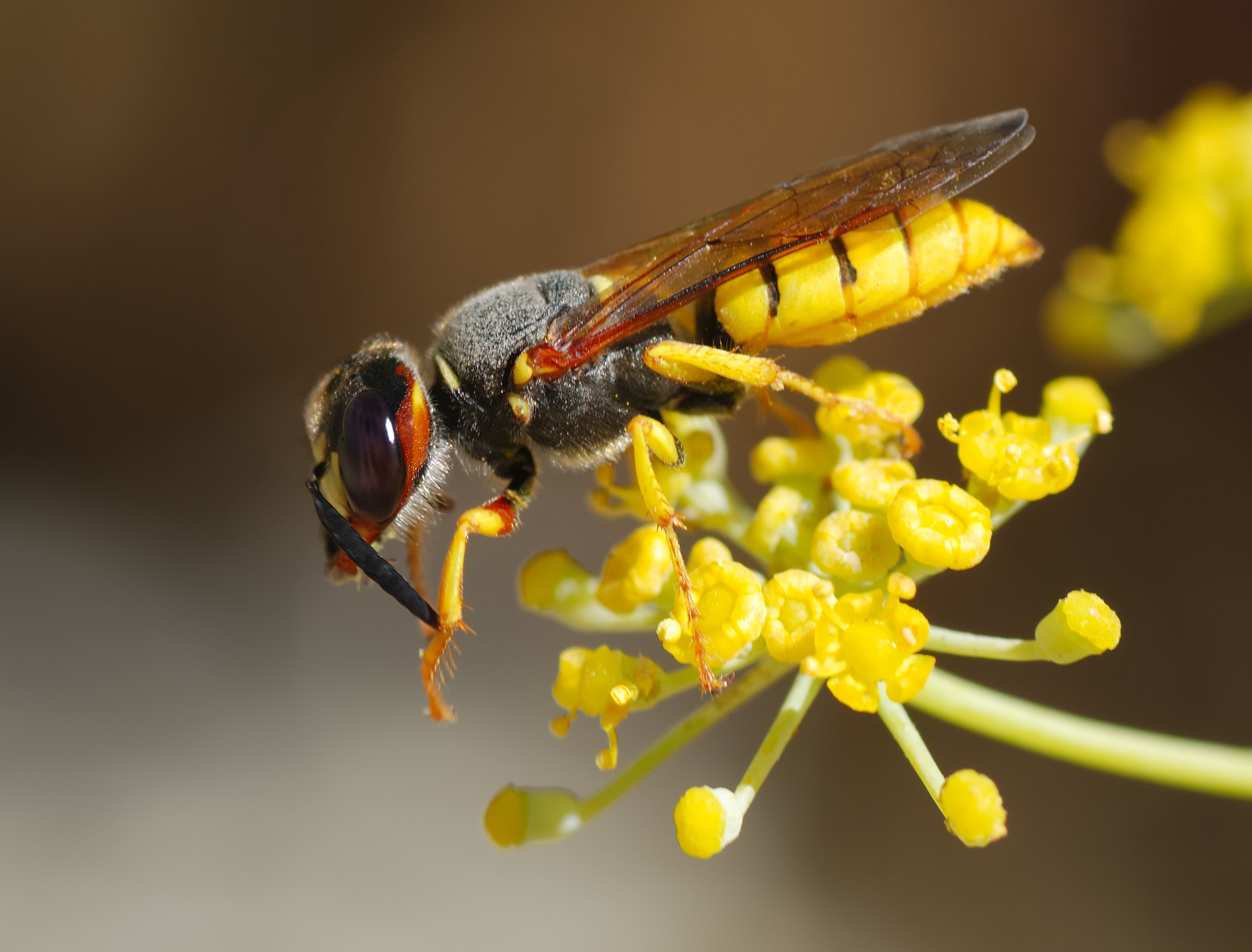- Philanthus triangulum
Taxobox | name = European beewolf

image_width = 240px
regnum =Animal ia
phylum =Arthropod a
classis =Insect a
ordo =Hymenoptera
familia =Crabronidae
subfamilia =Philanthinae
genus = "Philanthus "
species = "P. triangulum"
binomial = "Philanthus triangulum"
binomial_authority = (Fabricius, 1775)"Philanthus triangulum", or the European beewolf is a solitary wasp, that lives in
Europe andNorthern Africa . Though the adults of the species are herbivores (feeding on nectar and pollen), the species gets its name from the fact that the inseminated females huntWestern honey bee s, paralyze them, placing several in a small underground chamber and laying an egg in the chamber with them, where they then serve as food for the wasp larvae. All members of the genus "Philanthus " hunt various species ofbee s, but "P. triangulum" is apparently the only one that specializes in Western honey bees.tatus in the UK
This wasp was previously considered to be one of the great aculeate rarities in Britain, with colonies only in sandy habitats on the
Isle of Wight andSuffolk . It has undergone an expansion in range, with the wasp now locally common in a steadily increasing number of sites as far north asYorkshire (2002). The species has RDB2 status (vulnerable) but, if revised, it is now likely that this status will be removed because of its increase in range and population. [http://www.essexfieldclub.org.uk/portal/p/Species+Account/s/Philanthus%20triangulum]External links
* [http://www.biozentrum.uni-wuerzburg.de/beewolfbiology.html Biology of the European beewolf]
* [http://www.pherobase.com/database/species/species-Philanthus-triangulum.php Semiochemicals of "Philanthus triangulum", the European beewolves]
* [http://www.david.element.ukgateway.net/hymenoptera1beekillerwasps.htm Bee-killer wasps]
* [http://www.biozentrum.uni-wuerzburg.de/beewolf_pheromone.html Evolution of the sex pheromone of male European beewolves]
* [http://naturenet.net/blogs/index.php/2007/07/25/philanthus Short video of Philanthus excavating nest in UK]
Wikimedia Foundation. 2010.
